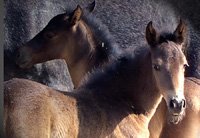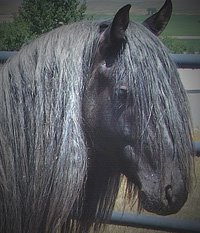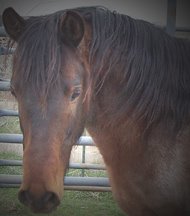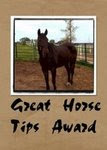Lies are about the worst thing I can think of.
It infuriates me to see unethical behavior gain the upper hand.
I am tense to the point of physical pain. The best thing I can say is that at least it's Friday.
 Several people expressed their sympathy today. They asked if I was going to ride this weekend. Just making conversation. Knowing that riding is something I enjoy. Something I might do for relaxation.
Several people expressed their sympathy today. They asked if I was going to ride this weekend. Just making conversation. Knowing that riding is something I enjoy. Something I might do for relaxation.I suppose I surprised them by saying no. But I haven't any patience left.
Ever tried working when a horse when your fuse is short?
It's a bad idea. In fact, to the horse, it's downright unjust. Confusing.
She doesn't understand lies, my horse. Whatever I tell her with my body and tone, she takes as purest truth.
She has no concept of misdirected rage.
She doesn't understand, "I'm sorry."
So I'll repair fence, or shovel manure, or fill the water troughs by hand. Maybe I'll just close my eyes and listen while the horses chew their hay. But I won't ride. Not until I'm good and ready to do it right.
This tempest ain't in any kind of teapot, see? It's mustang-wild. There's plenty of damage to be done, and I can't do enough to stop it.
But I can keep it from harming my horse.
Ethics?
What a novel idea.
_________________________________________________________
Related Posts
A Moment of Silence
_________________________________________________________
Want to read more posts like this one?














